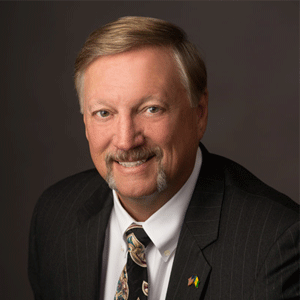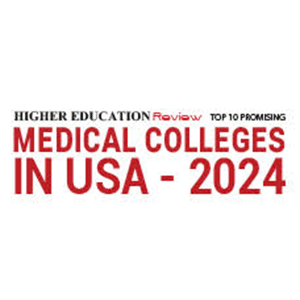
Trinity School Of Medicine: Building The Next Generation Of Great Physicians
By Steve Wilson, President
Built with a vision to be a world leader in preparing educated, compassionate physicians who deliver the highest quality patient-centred healthcare, Trinity School of Medicine was established in 2008 in response to the escalating scarcity of physicians in the U.S. and Canada. This scarcity has intensified in recent years due to multiple factors such as population growth, longer lifespans, and retiring physicians. Adding to the challenge is the restricted capacity of domestic medical schools, which limits the acceptance of numerous highly qualified students aspiring to become exceptional physicians. Trinity School of Medicine serves as an alternative pathway for these students who were previously denied admission to traditional medical schools despite possessing the necessary qualifications and determination to succeed as MDs.
Ensuring medical students are well-equipped for the healthcare field involves the provision of knowledgeable educators and seasoned mentors throughout their tenure in medical school. At the helm of Trinity School of Medicine is a highly qualified panel of Deans led by Dr. John P. Geisler, Dr. Kelly J. Manahan, and Dr. Naga Dharshan Devendra, each possessing extensive expertise in medical education and clinical practice.
During their first few terms on campus in St. Vincent and the Grenadines, students have the pleasure of working closely with Dr. Devendra, the Associate Dean of Basic Sciences. Dr. Devendra (MBBS, MD, DipRCPath) completed his medical education and residency in Clinical Biochemistry at Jawaharlal Institute for Postgraduate Medical Education and Research (JIPMER) in 2010. With over 12 years of teaching experience, Dr. Devendra has extensive experience in preparing students for the United States Medical Licensing Examination (USMLE).
In addition to gaining invaluable mentorship from faculty, students are also provided with hands-on learning opportunities with local physicians through Trinity’s partnerships with community hospitals and clinics in the U.S. Beyond receiving essential mentorship for professional growth, Trinity students actively participate in hospital duties and patient care beginning their first term.
Engaging in weekly ICCM rounds and community clinics in St. Vincent, students gain practical experience in assessing vital signs, taking patient histories and contributing to care discussions alongside seasoned medical teams, and playing an active role in delivering healthcare to the St. Vincent community.
Trinity offers a distinctive advantage through its intimate class sizes and an 8:1 student-to-faculty ratio. In contrast to numerous medical institutions where students might feel like anonymous faces and remain unknown to their instructors, Trinity's smaller classes ensure a more personal educational experience. This setting allows students direct access to professors for queries, supplementary guidance, and collaborative research initiatives.
Complementing classroom learning, Trinity offers diverse extracurricular opportunities for skill development. Collaborating with organizations like the World Pediatric Project, students engage in caring for children with special medical needs under the guidance of experienced volunteer physicians.
Additionally, various student interest groups facilitate hands-on experiences, from orthopedic surgery techniques to contributing to animal surgeries.
Trinity students enjoy the benefit of completing the entire 48 weeks of core rotations within a concise 52-week period, all at a single location (choice of Warner Robins, GA or Baltimore, MD). Clerkship arrangements and schedules are meticulously organized by a dedicated clerkship administrator at Trinity, closely collaborating with students to streamline their rotations. This unique setup means that unlike some other medical schools, there's no necessity for students to relocate across the country for clerkships, eliminating any gaps between rotations.
”Trinity offers a distinctive advantage through its intimate class sizes & an 8:1 student-to-faculty ratio”
Trinity recently broke ground on phase one of a major campus expansion, starting with their anatomy lab. This new facility will allow students to more deeply explore the complexities of the human body using the latest technology. That project, along with the addition of a 100-seat lecture hall, isn’t the only thing exciting about Trinity’s future.
Steve Wilson, President of the university, spoke about the future of the institution saying, “With the guidance of our knowledgeable deans, we are constantly working to improve our campus and curriculum so that it responds to and incorporates changes in medical practice. The world of medical innovation is constantly evolving and we are excited to embrace changes that will result in better healthcare for the patients our Trinity-trained physicians will one day serve”.
Leadership & Experiences that Lead to Success
Ensuring medical students are well-equipped for the healthcare field involves the provision of knowledgeable educators and seasoned mentors throughout their tenure in medical school. At the helm of Trinity School of Medicine is a highly qualified panel of Deans led by Dr. John P. Geisler, Dr. Kelly J. Manahan, and Dr. Naga Dharshan Devendra, each possessing extensive expertise in medical education and clinical practice.
During their first few terms on campus in St. Vincent and the Grenadines, students have the pleasure of working closely with Dr. Devendra, the Associate Dean of Basic Sciences. Dr. Devendra (MBBS, MD, DipRCPath) completed his medical education and residency in Clinical Biochemistry at Jawaharlal Institute for Postgraduate Medical Education and Research (JIPMER) in 2010. With over 12 years of teaching experience, Dr. Devendra has extensive experience in preparing students for the United States Medical Licensing Examination (USMLE).
In addition to gaining invaluable mentorship from faculty, students are also provided with hands-on learning opportunities with local physicians through Trinity’s partnerships with community hospitals and clinics in the U.S. Beyond receiving essential mentorship for professional growth, Trinity students actively participate in hospital duties and patient care beginning their first term.
Engaging in weekly ICCM rounds and community clinics in St. Vincent, students gain practical experience in assessing vital signs, taking patient histories and contributing to care discussions alongside seasoned medical teams, and playing an active role in delivering healthcare to the St. Vincent community.
Small Classes & Carefully Curated Courses
Trinity offers a distinctive advantage through its intimate class sizes and an 8:1 student-to-faculty ratio. In contrast to numerous medical institutions where students might feel like anonymous faces and remain unknown to their instructors, Trinity's smaller classes ensure a more personal educational experience. This setting allows students direct access to professors for queries, supplementary guidance, and collaborative research initiatives.
Complementing classroom learning, Trinity offers diverse extracurricular opportunities for skill development. Collaborating with organizations like the World Pediatric Project, students engage in caring for children with special medical needs under the guidance of experienced volunteer physicians.
Additionally, various student interest groups facilitate hands-on experiences, from orthopedic surgery techniques to contributing to animal surgeries.
Accreditation, Student Benefits & Valuable Scholarships
Trinity's academic programs undergo thorough evaluation by CAAM-HP, the main accreditation authority for Caribbean medical schools, allowing graduates to participate in residency match processes in the U.S and Canada. Accreditation through CAAM-HP ensures that the quality of education at Trinity is equal to that available in the U.S., as well as ensuring highly qualified faculty deliver a robust curriculum and abundant clinical rotation experiences.Trinity students enjoy the benefit of completing the entire 48 weeks of core rotations within a concise 52-week period, all at a single location (choice of Warner Robins, GA or Baltimore, MD). Clerkship arrangements and schedules are meticulously organized by a dedicated clerkship administrator at Trinity, closely collaborating with students to streamline their rotations. This unique setup means that unlike some other medical schools, there's no necessity for students to relocate across the country for clerkships, eliminating any gaps between rotations.
”Trinity offers a distinctive advantage through its intimate class sizes & an 8:1 student-to-faculty ratio”
Trinity Looking Ahead
Trinity recently broke ground on phase one of a major campus expansion, starting with their anatomy lab. This new facility will allow students to more deeply explore the complexities of the human body using the latest technology. That project, along with the addition of a 100-seat lecture hall, isn’t the only thing exciting about Trinity’s future.
Steve Wilson, President of the university, spoke about the future of the institution saying, “With the guidance of our knowledgeable deans, we are constantly working to improve our campus and curriculum so that it responds to and incorporates changes in medical practice. The world of medical innovation is constantly evolving and we are excited to embrace changes that will result in better healthcare for the patients our Trinity-trained physicians will one day serve”.


